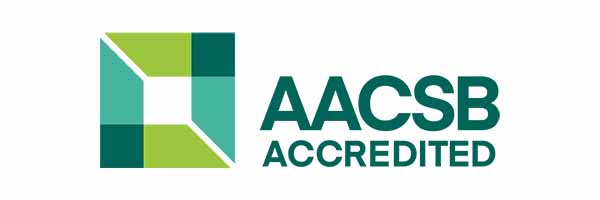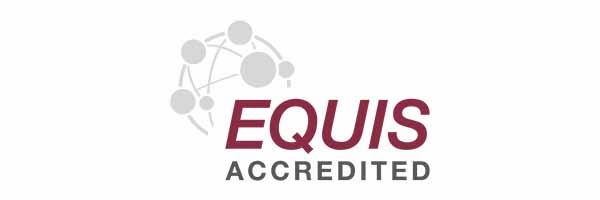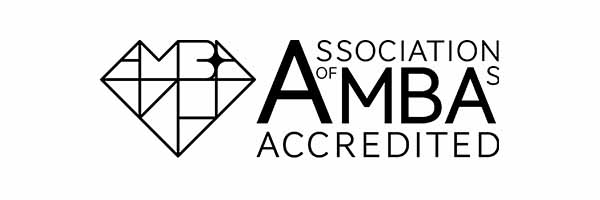MSc Applied Economics (Online)
ApplyKey facts
- Start date: September
- Accreditation: triple-accredited business school AACSB, EQUIS & AMBA
- Study mode and duration: 24 months part-time online distance learning
Study with us
- gain skills in data analysis and economic modelling
- learn to apply economic techniques to real-world problems in business and policy
- develop ability to interpret and understand key economic and financial statistics and information
- benefit from an online distance learning study model
The Place of Useful Learning
UK University of the Year
Daily Mail University of the Year Awards 2026
Scottish University of the Year
The Sunday Times' Good University Guide 2026
Why this course
The MSc Applied Economics (online) focuses on developing your technical and analytical skills alongside your practical experience of how these skills are used to solve real-world economic problems and inform decision-making in a variety of environments. This unique feature sets it apart from other degrees in economics.
You'll gain knowledge and an understanding of the core principles of economic analysis, and the experience in how to apply them.
You'll acquire skills in economics, data analysis and modelling techniques, as well as key transferable skills in leadership, project management, problem-solving, communication and negotiating that, are sought after by employers.
The programme has been designed in consultation with key employers of our graduates, as well as the business, consulting and policy communities for the aspiring professional economist. This means that what you learn on the course is exactly what employers look for when recruiting new economists.


Through the programme you'll:
You'll become part of Strathclyde’s global community of graduates and researchers who are shaping solutions to some of the world’s most pressing challenges. Sustainability lies at the heart of the programme, explored through environmental, economic, social, and political perspectives.
The course also provides the opportunity for you to choose economics electives that meaningfully cover sustainability-focused topics such as Energy Economics or Environmental Economics, enhancing your understanding of global sustainability challenges.
Our degree delivers practical and relevant learning by aligning the programme with the needs of policymakers and industry.
The Department of Economics and the Fraser of Allander Institute maintain strong links with stakeholders across the Scottish and UK economy, shaping both our teaching and course content.
The curriculum contextualises knowledge through relevant examples and the analysis of real-world situations, including datasets and empirical case studies. These connections ensure that teaching and research remain aligned with contemporary challenges, promote knowledge exchange, and will provide you with practical insights and exposure to real-world issues.
This approach ensures that the programme is not only academically rigorous but also directly applicable to professional practice.
The MSc is designed to embed Strathclyde’s core values throughout the student journey. The programme fosters reflective practice, collaborative problem-solving, and strategic thinking. It will provide you with the opportunity to develop teamworking and presentation skills which are applied through various on-campus class activities. Through modules such as International Macroeconomics, Economic Modelling, Data Analysis and Professional Development for Economists, you'll explore real-world problems and develop practical solutions.
This approach nurtures a mindset of continuous learning and innovation. Throughout your studies, you're encouraged to challenge assumptions confidently, embrace managed risk in decision-making, and think creatively. As a graduate, you'll be able to work across disciplines, share ideas, and co-create solutions for the economic and policy challenges across a wide range of industries.
This programme will develop the capabilities you need for a successful career by motivating you to push boundaries, deepen your expertise, and apply your skills to tackle complex challenges in business, government, and society – these qualities are essential for roles in policy analysis.
All students have access to Strathclyde Inspire, a University-wide, sector-leading initiative that supports and encourages all forms of entrepreneurship, providing opportunities to develop an entrepreneurial mindset valued in any organisation or career and empowering you to drive innovation or change within an organisation.
What you'll study
Core classes will give you a solid grounding in the core concepts and techniques of an applied economist. Elective classes will give you experience in applying these skills to hot-topics of the day.
The programme will provide you with
- a comprehensive understanding of key economics concepts and theories
- core skills in economic modelling and data analysis which can be used to inform decision-making
- understanding of, and the ability to use, techniques of economic appraisal in a variety of contexts
- experience in the application of economic analysis to day-to-day activities of public and private sector organisations
Summer Project
Your summer project topic can be chosen from any of the areas/issues covered on the programme. This is your opportunity to develop a substantive piece of applied work on a topic of particular interest to you, with supervision provided by an appropriate staff member. It’s also a key opportunity to put into practice what you have learned during your MSc studies.
We're also able to supervise students sponsored by their employer who wish to work on a topic of interest to them and their employer.
Triple-accredited business school

I absolutely loved the content. It's so applicable for so many different fields. Professionally, it'll continue developing how you think - not just in economic terms, but also as a professional in business.
MSc Applied Economics (Online) student
Strathclyde Business School
Strathclyde Business School was founded in 1948 and is a pioneering, internationally renowned academic organisation with a reputation for research excellence.
One of four faculties forming the University of Strathclyde, SBS is a triple-accredited business school (AACSB, EQUIS and AMBA) and was the first business school in Scotland to achieve this accolade in 2004.
The Business School is home to seven subject departments and a number of specialist centres, all of which collaborate to provide a dynamic, fully-rounded and varied programme of specialist and cross-disciplinary courses.
Strathclyde Inspire
At Strathclyde, we live and breathe entrepreneurship. The University of Strathclyde started life as a place of useful learning, an institution that wanted to make a difference through dong things innovatively, boldly and socially oriented; this founding mission has never been more relevant. Today, we continue to nurture generations of influencers, innovators and industry leaders, empowering our staff, students and alumni to embrace entrepreneurship, transforming their own lives and the lives of others.
Strathclyde Inspire supports and encourages entrepreneurship in all its forms, so whether you want to be more entrepreneurial in your approach to life, business and society, have an idea for a business, or are considering commercialising your research, we will support you at every stage of your journey.
Core classes
Fundamentals of Microeconomics
10 credits
The main aim of this module is to introduce students to theoretical microeconomics. A further aim is to provide an understanding of how micreconomics knowledge can be applied to practical problems faced by businesses that compete in both competitive and regulated markets.
You'll meet some key concepts and principles of economics, focusing particularly on consumer theory and the theory of the firm. You’ll be shown how these concepts and theories are applied to the analysis of a range of contemporary real-world issues.
You'll be learn to:
- understand the economic way of thinking
- appreciate the relevance of economics to business
- understand the operation of markets and the interaction of supply and demand
- appreciate the relationship between revenue, costs and profits
- acquire an analytical understanding of profit maximisation
- understand the economic role of marketing and advertising
- develop the ability to describe market outcomes and how these change when the market environment changes
- understand alternative theories of the firm and different pricing strategies
- understand the impact that governments and demand/supply side policies have on business decisions
Fundamentals of Macroeconomics
10 credits
This module aims to provide students with clear frameworks they can use to understand macroeconomic events. The skills developed will enable graduates to understand how policy makers and businesses can react to, cope with, and anticipate changes in the macroeconomic environment including business cycles, inflation, commodity price shocks, changes in interest rates, taxation, government spending and government debt.
The modules aims to provide you with the ability to:
- understand macroeconomic events in an integrated world;
- communicate the implications of changes in the macroeconomic environment for business managers;
- present macroeconomic analysis in clear and concise yet informative reports
You'll learn about:
- macroeconomic policies in an open economy
- the factors guiding the choice of a given exchange rate regime
- the economics of a monetary union
- the pros and cons of globalisation, and its interactions with economic development, inequality, and political economy
- the nature and impacts of financial crises
- the interactions between exchange rate crises, banking crises and sovereign debt crises
- the long-run determinants of economic growth in an open economy
International Macroeconomics
This course will enable you to understand global trends and to study the key drivers of international economics, including how exchange rates move; what determines flows of international investment; and why some countries grow more quickly than others. With the global economy becoming ever more integrated, understanding of these issues is important for the applied Economist working within business, consulting and policy.
10 credits
Topics in Public Economics
This class builds on the knowledge acquired in Foundations of Business Economics to explore the role of government and public policy in the economy. You'll learn about why governments often intervene in the economy when markets do not operate as planned, and gain an understanding of the trade-offs faced when intervening. You'll also learn about how public utilities operate and why and how they are regulated.
10 credits
Elective classes
Energy Economics
In this class you will explore key economic issues at the heart of topical energy questions – building on the University’s outstanding reputation as a centre of excellence in energy technology and policy. The class covers the objectives of energy policy; private and social perspectives on energy supply and demand; the special case of regulation of energy markets; the use of economic models in energy analysis; the economics of oil and gas activity and links between energy use and the energy sector and an economy.
International Development
This class will introduce policy relevant issues and knowledge in the economics of development. Lectures will combine insights from theoretical economic models with policy-relevant empirical evidence on in low-income countries. Moreover, through the thorough analysis of empirical research, the class will assist students in developing skills required to make an effective contribution working as an applied economist.
Games of Strategy
In this class you will study decision making in strategic scenarios where the outcome of a decision depends not only on your decision but also the decisions made by others. This is a key class for those considering careers in industry where competition is crucial and effective market strategies are vital to the success of the business. You will learn how to make effective decisions in such environments and to gain an advantage over your competitors.
Environmental Economics
A growing, and increasingly important, part of the work of many applied Economists includes the economic analysis of environmental issues. Additionally, many professionals working in the fields of energy, the natural environment, or business more generally will find that their careers require some working knowledge of economic approaches to environmental problems. The main objective of this class is to provide a thorough grounding in the economics of the environment, with a particular focus on environmental protection in an international policy context, such as climate change the loss of biological diversity.
Economics of Inequality and Inclusive Growth
Understanding what drives inequalities in economic outcomes is a key aspect of modern economic thinking. Many of the drivers of such inequalities are cross-cutting, covering a range of economic issues from changes in economic policy through to the overall macroeconomic environment and the changing nature of our modern labour market. This class is designed to:
- raise the awareness of the different roles for economic analysis in the formulation of effective policies aimed at tackling inequality and reducing poverty, and
- develop policy-relevant understanding of current issues inclusive growth enabling students to effectively contribute as an applied economist
10 credits
Health Economic Policy
This class provides you with an introduction to health economic policy, a key area for their potential future careers. The purpose of this course is to develop your ability to use economic concepts and theories to analyse existing issues in the health care market and to inform decision making and policy development. The class will provide you with an overview of policy issues from both an academic and practitioner perspective. The class will also focus both on technical skills that are needed to do research in the area of health economics, as well as on policy implications and discussions. Due to its focus on policy evaluation, the course will provide a supporting function for you to proceed to the Summer Project study.
10 credits
Core classes
Analysis of Economic Data
You’ll learn about the skills in data analysis that make up an essential part of the work of an applied economist. This will include carefully chosen applications of methods and techniques that permit insightful analysis of data, the specification and testing of hypotheses, and estimation techniques. The class is taught via short videos, lecture slides, textbook reading and lab worksheets, ensuring that you gain experience in both undertaking the analysis of economic data and in interpreting results.
Economic Appraisal & Modelling
20 credits
Economic appraisal and modelling lie at the heart of what most economists in business, consulting and government do on a day-to-day basis. You'll examine the key principles and techniques of economic appraisal and learn – through your own applications - how these are used in private and/or social analysis.
Techniques covered will include cost-benefit analysis, cost-effectiveness analysis and multi-criteria analysis. The economic modelling component will provide you with insights into how models designed to describe the operation of any economy can be used to help inform decision making. You’ll drawing on the practical modelling expertise gained within the Fraser of Allander Institute which has – for over forty years – developed an international reputation in the development and use of economic modelling for analysing policy-relevant issues.
Professional Development for Economists
This class is a truly distinctive feature of our MSc, combining a practitioner seminar series with site visits and skills development sessions. You'll learn about topical issues in economics from invited speakers who are working as Economists in business, consultancy or policy roles as well as developing core transferable skills that extend the applied Economist’s toolkit. These skills include writing accessible briefing notes, presenting data, team working, planning and delivering on consultancy projects, leadership skills and gaining experience in presenting findings. This class is complementary to the other classes and is fundamental to developing the skills that are sought after by employers.
20 credits
Summer Project
Your summer project makes up 40 of the 180 credits required to receive your MSc award. While we expect that all learning throughout the degree will be helpful for the Summer Project, you can choose your topic from any area/issue in the field of Economics.
Every student will be supervised by an appropriate member of staff with expertise in the research area. This is your opportunity to develop a substantive piece of applied work on a topic that is of particular interest to you under the guidance of a supervisor.
In addition to providing a key opportunity to put into practice what you have learned during your MSc studies, this project will provide useful experience for your future careers. We're also able to supervise students who are sponsored by their employer and wish to work on a topic of interest to both them and their employer.
40 credits
Elective classes
Energy Economics
In this class you'll explore key economic issues at the heart of topical energy questions – building on the University’s outstanding reputation as a centre of excellence in energy technology and policy. The class covers the objectives of energy policy; private and social perspectives on energy supply and demand; the special case of regulation of energy markets; the use of economic models in energy analysis; the economics of oil and gas activity and links between energy use and the energy sector and an economy.
10 credits
International Development
This class will introduce policy relevant issues and knowledge in the economics of development. Lectures will combine insights from theoretical economic models with policy-relevant empirical evidence on in low-income countries. Moreover, through the thorough analysis of empirical research, the class will assist students in developing skills required to make an effective contribution working as an applied economist.
10 credits
Games of Strategy
In this class you will study decision making in strategic scenarios where the outcome of a decision depends not only on your decision but also the decisions made by others. This is a key class for those considering careers in industry where competition is crucial and effective market strategies are vital to the success of the business. You will learn how to make effective decisions in such environments and to gain an advantage over your competitors.
Environmental Economics
A growing, and increasingly important, part of the work of many applied Economists includes the economic analysis of environmental issues. Additionally, many professionals working in the fields of energy, the natural environment, or business more generally will find that their careers require some working knowledge of economic approaches to environmental problems. The main objective of this class is to provide a thorough grounding in the economics of the environment, with a particular focus on environmental protection in an international policy context, such as climate change the loss of biological diversity.
10 credits
Economics of Inequality & Inclusive Growth
10 credits
Understanding what drives inequalities in economic outcomes is a key aspect of modern economic thinking. Many of the drivers of such inequalities are cross-cutting, covering a range of economic issues from changes in economic policy through to the overall macroeconomic environment and the changing nature of our modern labour market. This class is designed to:
- raise the awareness of the different roles for economic analysis in the formulation of effective policies aimed at tackling inequality and reducing poverty, and
- develop policy-relevant understanding of current issues inclusive growth enabling students to effectively contribute as an applied economist
Health Economic Policy
This class provides you with an introduction to health economic policy, a key area for their potential future careers. The purpose of this course is to develop your ability to use economic concepts and theories to analyse existing issues in the health care market and to inform decision making and policy development. The class will provide you with an overview of policy issues from both an academic and practitioner perspective. The class will also focus both on technical skills that are needed to do research in the area of health economics, as well as on policy implications and discussions. Due to its focus on policy evaluation, the course will provide a supporting function for you to proceed to the Summer Project study.
10 credits
Fraser of Allander Institute
The Department of Economics is the home of the Fraser of Allander Institute, a leading independent economic research institute. Besides teaching several classes, the institute offers scholarships for students taking the full-time MSc Applied Economics and offers opportunities for work placements each year.
Through our link with the institute, you'll have a unique opportunity to engage with staff working at the cutting edge of applied economics research, industry engagement and policymaking. Recent students have also had the opportunity to publish articles on the Fraser of Allander Institute's blog and contribute to its podcasts.
The practitioner seminar series within our Professional Development for Economists class provides you with opportunities to learn from senior figures in business, consultancy and government about the key economic issues of the day and their own journey to the top of their chosen career. Many of the speakers are our own graduates.
Lewis O'Neill, MSc student
Chat to a student ambassador
Want to know more about what it’s like to be a Strathclyde Business School student at the University of Strathclyde? A selection of our current students are here to help!
Our Unibuddy ambassadors can answer all the questions you may have about their course experiences and studying at Strathclyde, along with offering insight into life in Glasgow and Scotland.

I would really recommend this MSc as it is a great way to develop a career as an applied economist. It provides the skills and knowledge to understand the modern-day economy and to pursue a career in it.
MSc Applied Economics (Online) student
What our students think
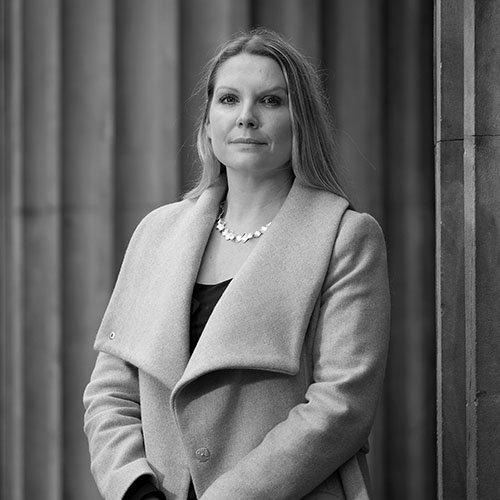
Claire Mack
There is no doubt that completing the course helped me take my next career step and has led me to a leadership role in an industry that I love by giving me a great set of tools and frameworks for economic analysis.
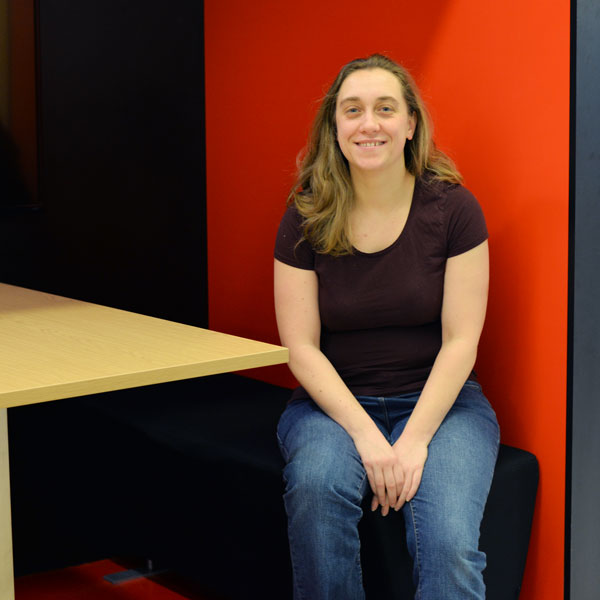
Michelle Brown
The lecturers are all friendly and approachable which is always good. You can also tell that they love what they’re teaching, they’re passionate about the subject.

Rob Watts
The classes have covered a wide range of topics and offer a good split between theory and application. There is a particular focus on the skills that we’re developing and how these can be used in future careers as applied economists.

Iswat Oladele
I really enjoy how the course contents are very practical and cover real-life topical issues. I particularly enjoyed Fundamentals of Macroeconomics with Julia Darby and International Development with Marco Alfano.
Learning & teaching
All classes are taught using material presented via the internet. Classes are supported by faculty members who also teach on our range of full-time courses. They will guide and support discussion via forums. You'll have full access to our user-friendly Virtual Learning Environment (VLE). Benefits of using the VLE include:
- anytime, anywhere learning
- access to tutors throughout your course
- continuously updated, dynamic, interactive online materials
- online group discussions
- live question & answer sessions
- live conferencing
Assessment
Classes are assessed by a mix of written individual and group assignments, weekly tasks and examinations.
Entry requirements
| Academic requirements | Minimum second-class honours degree or overseas equivalent in any subject (view the entry requirements for your country). |
|---|---|
| English language requirements | Students whose first language is not English must have a minimum of 6.5 IELTS score, with no individual score lower than 5.5. Get more information about the English language requirements for studying at Strathclyde. |

Fees & funding
All fees quoted are for part-time courses and per academic year unless stated otherwise.
Fees may be subject to updates to maintain accuracy. Tuition fees will be notified in your offer letter.
All fees are in £ sterling, unless otherwise stated, and may be subject to revision.
Annual revision of fees
Students on programmes of study of more than one year (or studying standalone modules) should be aware that the majority of fees will increase annually.
The University will take a range of factors into account, including, but not limited to, UK inflation, changes in delivery costs and changes in Scottish and/or UK Government funding. Changes in fees will be published on the University website in October each year for the following year of study and any annual increase will be capped at a maximum of 10% per year. This cap will apply to fees from 2026/27 onwards, which will not increase by more than 10% from the previous year for continuing students.
| Scotland | £6,700 |
|---|---|
| England, Wales & Northern Ireland | £6,700 |
| Republic of Ireland |
If you are an Irish citizen and have been ordinary resident in the Republic of Ireland for the three years prior to the relevant date, and will be coming to Scotland for Educational purposes only, you will meet the criteria of England, Wales & Northern Ireland fee status. For more information and advice on tuition fee status, you can visit the UKCISA - International student advice and guidance - Scotland: fee status webpage. Find out more about the University of Strathclyde's fee assessments process. |
| International | £12,550 |
| Available scholarships | Take a look at our Business School scholarships. |
Please note: the fees shown are annual and may be subject to an increase each year. Find out more about fees.
Additional costs
International students may have associated visa and immigration costs. Please see student visa guidance for more information.
How can I fund my course?
Scottish postgraduate students
Scottish postgraduate students may be able to apply for support from the Student Awards Agency Scotland (SAAS). The support is in the form of a tuition fee loan and for eligible students, a living cost loan. Find out more about the support and how to apply.
Don’t forget to check our scholarship search for more help with fees and funding.
Students coming from England
Students ordinarily resident in England may be to apply for postgraduate support from Student Finance England. The support is a loan of up to £10,280 which can be used for both tuition fees and living costs. Find out more about the support and how to apply.
Don’t forget to check our scholarship search for more help with fees and funding.
Students coming from Wales
Students ordinarily resident in Wales may be to apply for postgraduate support from Student Finance Wales. The support is a loan of up to £10,280 which can be used for both tuition fees and living costs. Find out more about the support and how to apply.
Don’t forget to check our scholarship search for more help with fees and funding.
Students coming from Northern Ireland
Postgraduate students who are ordinarily resident in Northern Ireland may be able to apply for support from Student Finance Northern Ireland. The support is a tuition fee loan of up to £5,500. Find out more about the support and how to apply.
Don’t forget to check our scholarship search for more help with fees and funding.
International students
We've a large range of scholarships available to help you fund your studies. Check our scholarship search for more help with fees and funding.
Glasgow is Scotland's biggest & most cosmopolitan city
Our campus is based right in the very heart of Glasgow. We're in the city centre, next to the Merchant City, both of which are great locations for sightseeing, shopping and socialising alongside your studies.
Careers
Many of our graduates have gone on to senior positions in business, in consultancy and within government, while some have progressed to PhD level study and careers in academia.
The range of topics and subject areas is great, it allows you to find out what really interests you and what you might want to pursue in the future. The focus on data, as well as appraisal and modelling techniques prepares you well for working in economics.
Catriona Reilly, current student
Recent graduates
Recent examples include former students working in the following areas:
- global economics and financial consulting firms including Analysys Mason in Edinburgh, Ernst and Young and DeVere Group in London and Function Capita in Shanghai, China
- financial advisor/analyst roles within Investment and Asset Management companies including JP Morgan and KPMG and Franklin Templeton Investments in Edinburgh, Dune Real Estate Partners in New York and Fraser Spy Financial Services Ltd in Glasgow
- banks including Clydesdale Bank in Glasgow, China Merchants Bank and Dongguan Rural Commercial Bank, both in Guandong, China and Pareto Bank in Oslo
- international organisations such as the Organisation of Economic Cooperation and Development in Paris
- economic development agencies including the Scottish Council for Development and Industry
- the UK Government Economics Service, within the Office of National Statistics, the National Audit Office and the Scottish Government
- economic policy roles within the governments of Nigeria, Rwanda and South Sudan and the Central Bank of the Seychelles
- public and industry bodies such as OFGEM, the Competition and Markets Authority, Scottish Fiscal Commission, Scottish Renewables and the Water Industry Commission for Scotland
Apply
For information and guidance on the application process, take a look at our How to Apply web page.
Start date: Sep 2026
Applied Economics (online)
Contact us
SBS Postgraduate Admissions
Telephone: +44 (0)141 553 6105 / +44 (0)141 553 6116
Email: sbs.admissions@strath.ac.uk
Strathclyde Business School, University of Strathclyde
199 Cathedral Street
Glasgow
G4 0QU
Have you considered?
We've a range of postgraduate taught and Masters courses similar to Applied Economics, which may also be of interest.


